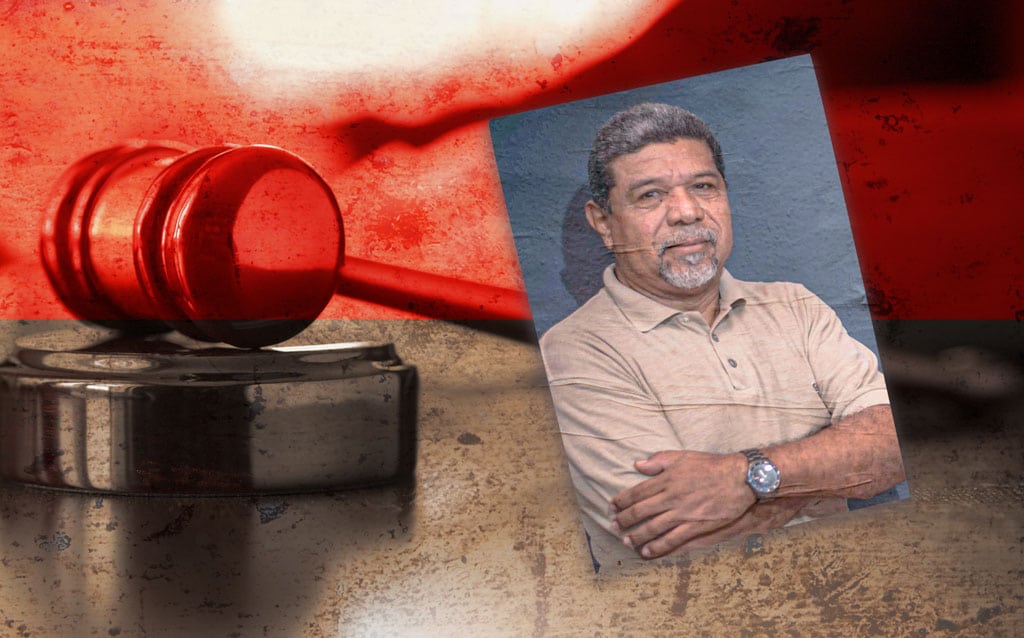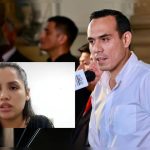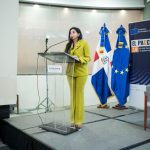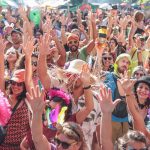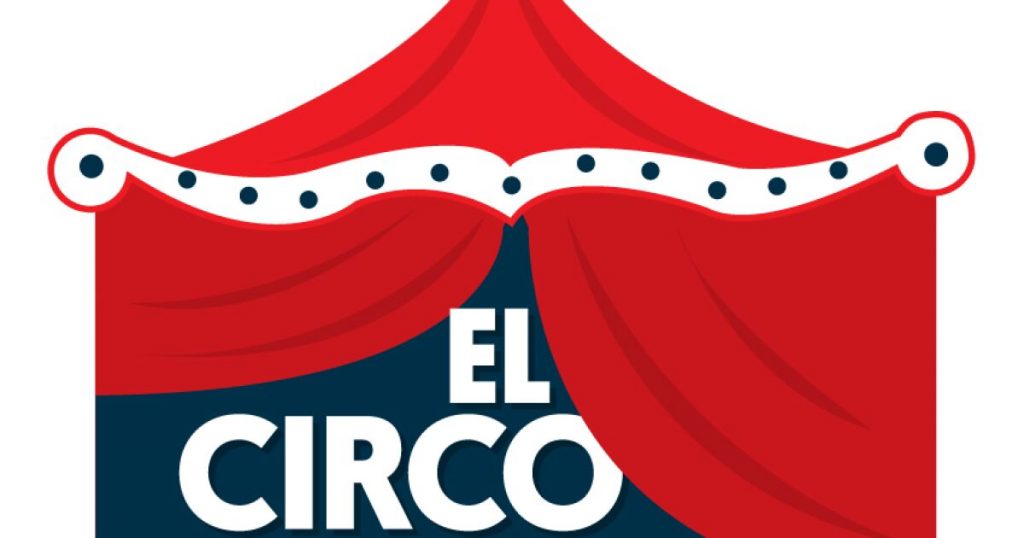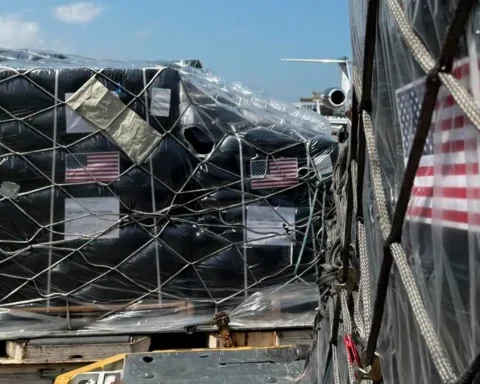Freddy Navas, leader of the Peasant Movement, was found guilty by the justice of the Ortega regime for the crime of “conspiracy to undermine national integrity to the detriment of the State of Nicaragua and Nicaraguan society”, in a political trial, held this Thursday February 10 in the Judicial Assistance Directorate (DAJ), known as El Chipote, where he remains imprisoned for the second time since July 5, 2021.
The Prosecutor’s Office requests a sentence of ten years in prison and disqualification from holding public office. Navas is the third member of the Peasant Movement that Daniel Ortega’s regime condemns behind closed doors. This Wednesday, the also presidential candidate, Medardo Mairena and Pedro Mena, both members of the Movement, they were also found guilty of the same crime.
The witnesses presented by the Prosecutor’s Office, as in the rest of the political trials, were police officers; between agents who participated in the arrest of Navas and a computer expert, who searched for the posts of the prisoner of conscience on social networks, learned CONFIDENTIAL.
They also presented, as evidence, statements by the peasant leader, in which he called for the unity of the presidential candidates, who are currently imprisoned in Chipote along with student, social, civil, political leaders and human rights defenders.
During his speech at the trial, which was attended by a family member, Navas stated that he is not a politician, and that his fight arose from the approval of Law 840, better known as “Canal Law”because “handed over sovereignty (of the country)”. Navas was referring to the legislation that grants a large part of the national territory to Wang Jing, a Chinese businessman of the Hong Kong Nicaragua Development (HKND) company, who promised to build an interoceanic canal in Nicaragua in 2013, with the permission of the Ortega regime, and then disappeared.
The canal project unleashed hundreds of protests led by the Peasant Movement, made up of the families that would be affected by the alleged canal route; from Punta Gorda, in the South Caribbean to the Brito River, in Rivas. Thousands of peasants like Navas came out to protest in defense of their land.
“Fighting for my country is my passion. They are judging me for love of my country, if I am guilty of something it is of loving Nicaragua”Navas said at the trial.
imprisoned for the second time
Navas recalled, in a video that circulated after his current detention, that in 2018 — when he was captured for the first time, on November 17 — he spent two and a half months in an isolation cell, naked, sleeping on a tile. He was released on June 11, 2019 for a “Amnesty Law”, prepared by the Government and questioned by the opposition.
“The torture, the beatings, the psychological pressure was great, but also there God has no borders and your prayers reach one… Daniel Ortega is not the owner of Nicaragua, the owners of Nicaragua are each and every one of you” , he highlighted. Currently, political prisoners in Chipote suffer psychological torture, isolation and cold.
Navas was captured along with Mena and Mairena. On that same night, July 5, 2021, the regime also arrested student leaders, Lesther Alemán and Max Jerez. The peasant leader is originally from the island of Ometepe.
In the trial of Mena and Mairena, a police officer who allegedly carried out undercover investigations and attended the hearing hooded —in police jargon it is known as code one— assured that since 2019 they have been monitoring the Peasant Movement. But he did not provide details.
Trials in “the new Chipote” violate the law
The political trials reactivated by orders of Daniel Ortega have been scheduled for the entire month of February against political prisoners, in the same facilities of “El Chipote”, where dozens have been imprisoned since the end of May 2021.
However, carrying out these processes in the prison facilities constitutes one more of the illegalities of due process, according to the specialist in Criminal Law, María Asunción Moreno, in an interview with Tonight.
Lawyers who closely follow the cases against political prisoners agree with Moreno that judges cannot hold hearings outside the Judicial Complex, and that the exceptions established in article 121 of the Criminal Procedure Code only apply to “proceedings” that require the presence of the judge in his territorial jurisdiction.
However, they maintain that the exception does not apply in the case of these political trials, because neither the defense nor the Prosecutor’s Office have requested that they be held in “the new Chipote,” the lawyer said.
The right to defense is violated
Another of the illegalities is that the defenders of political prisoners have not accessed their files – completely or partially – and they have not been able to talk freely with prisoners of conscience.
A lawyer who monitors political trials assured CONFIDENTIAL that in these processes the exercise of technical and material defense is being violated, contrary to article 124 of the Code of Criminal Procedure (CPP), which establishes that “the parties may obtain at their own expense simple copies of the judicial proceedings without any formality” .
Also, he added, article 34 of the Political Constitution of Nicaragua is violated, which in its numeral 4, demands that “their intervention and due defense be guaranteed from the beginning of the process or procedure and to have adequate time and means for their defense ” .
In addition, this January 31, the Public Ministry violated the presumption of innocence of political prisoners, by calling them “criminals and delinquents” in a statement announcing the resumption of trials.
“These same criminals and delinquents have reoffended, attacking the rights of the Nicaraguan people and society, compromising peace and security. They are the same ones that promoted and directed the terrorist acts of the failed coup attempt of 2018, having paralyzed the country and created damage to the economy; They are the same ones that have caused so much pain and mourning in the Nicaraguan family because of the murders, torture and kidnappings,” he published.
Likewise, Ortega already condemned the political prisoners on November 8, in his most virulent speech against political prisoners, in which he called them “sons of bitches of imperialism.”
They demand the release of political prisoners
The Ortega regime keeps more than 170 Nicaraguans imprisoned, and more than 30 of them remain in “the new Chipote”, under isolation, in punishment cells, suffering physical and psychological torture, according to their relatives, who have only managed to visit them on five occasions during the more than six months of confinement.
Relatives of more than 30 political prisoners They demanded, at the end of January, the annulment of the trials and the unconditional release of all prisoners of conscience. In this way, they joined a previous statement, in which another group of relatives appealed for the support of “rulers, living forces of the nation and (Catholic) Church” so that they “lead” a “citizen unification process”, emphasizing that the release of prisoners of conscience would serve “as a kind of liberation shared by all Nicaraguans.”
After the communiqués, the Superior Council of Private Enterprise (Cosep), which had been silent since September 2021, supported the demand for the freedom of prisoners of conscience, and announced its willingness in favor of a national dialogue “without preconditions”, in in the midst of the worst legitimacy crisis of the Ortega regime, which previously announced meetings with different economic sectors, without mentioning COSEP.
Among the 39 political prisoners captured between May 28 and October 21 (including four under house arrest), 29 are accused of alleged conspiracy to undermine; another seven are accused of money laundering and other crimes; two are investigated for violations of the “Law of Sovereignty” and one for abusive management and improper appropriation and retention.
The regime has used against the opposition the package of repressive laws that they approved between October 2020 and February 2021, being the most used until now, Law 1055 or Law for the Defense of the Rights of the People to Independence, Sovereignty and Self-determination for Peace, better known as the “Sovereignty Law”, which facilitated the imprisonment of seven presidential candidates, as well as political, civic, student, peasant, former diplomat, journalist, activist, professional and human rights defender leaders.
He has also used the Special Cybercrime Law, known as the “Gag Law”approved on October 27, 2020, which penalizes whoever -according to the regime’s criteria- spreads “false news”.
Thus, the Prosecutor’s Office sentenced in January Donald Margarito Alvarenga Y Douglas Cerros Lanzas. Alvarenga was convicted of allegedly inciting “hate and violence” through Facebook posts and WhatsApp messages and for “subversion, disobedience and rebellion at the level of conspiracy to affect national integrity”; and Cerros for allegedly undermining national integrity and spreading false news.
